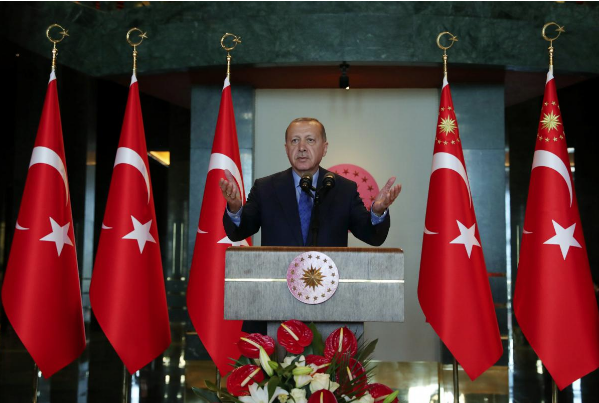How the Andrew Brunson case is straining relations between the US and Turkey to breaking point
The Andrew Brunson case is at the heart of a deterioration in relationships between the US and Turkey marked by a meltdown in the value of the lira, sanctions and increasingly hostile rhetoric traded between theoretically close allies.
Presidents Trump and Erdogan met only a month ago at a NATO summit where Trump praised the Turkish president for 'doing things the right way'.

However, at a religious freedom 'ministerial' at the end of last month, Vice President Mike Pence warned Turkey would be sanctioned unless Brunson was freed.
Brunson, a long-time resident of Turkey who served as pastor of a church in Izmir, was arrested in March 2016 and accused of having links with the outlawed Gulen Movement, blamed by Turkey's President Erdogan for instigating an attempted coup against him.
Lurid tales of Brunson's links with the CIA have circulated in Turkish media, all of which have been denied by the US, which insists he is simply a missionary pastor unjustly imprisoned.
Brunson, who has been moved to house arrest, faces 35 years in prison if he is convicted of the offences. He has drawn support from human rights and religious liberty organisations and become a test case for President Trump's public commitment to standing up for religious liberty. The Trump administration had pressed Turkey hard for his release, but when he was tranferred from prison to house arrest it ratcheted up the pressure. Financial sanctions were imposed on two ministers and tariffs on steel and aluminium were doubled.
As well as sparking panic in financial markets, the move caused Erdogan to react in fury. He told supporters yesterday that Turkey 'would not give in'. 'The US is sacrificing its 81-million-strong ally Turkey for a pastor with links with terrorists,' he said.
Appealing to his nationalist base, he said: 'They are going to make us slaves to the dollar. Foreign exchange, interests... so what? They [the US] said, "If you don't release the pastor by 6 pm on Wednesday we will start sanctions." They are going to sanction our interior and justice minister.'
He accused the US of 'economic warfare' and warned Turkey would look for 'new friends and allies'.
However, for all Turkey's political and economic importance to the US – it is a NATO member and is a customer for US military hardware – the administration's responsiveness to Trump's evangelical power base means it is prepared to risk alienating Erdogan on a point of principle. Whether this will make it more or less likely that Brunson is released remains to be seen.











